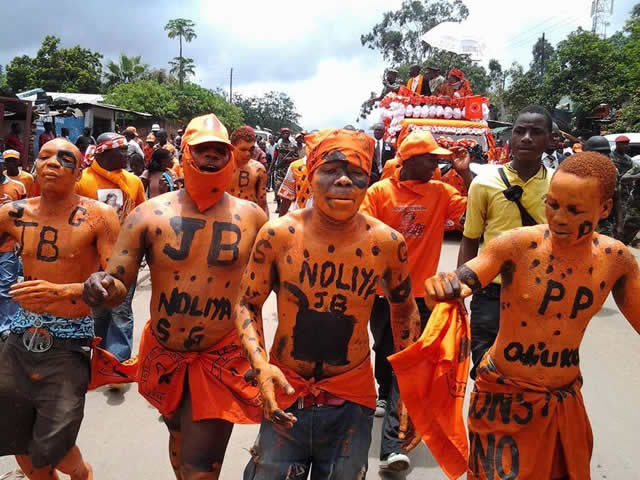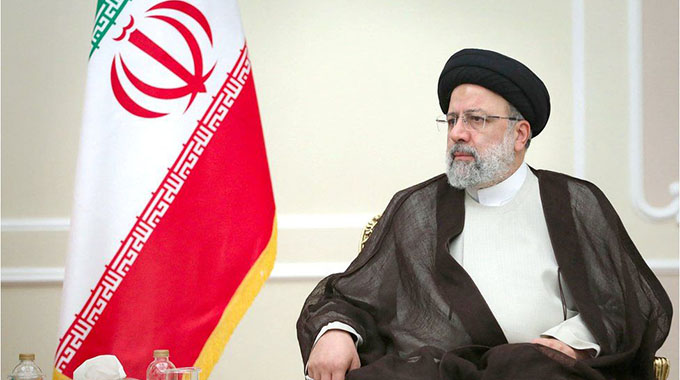Malawi elections — Battle for the youth

 The signing of a youth empowerment declaration by all presidential candidates contesting the 20 May elections in Malawi is a clear indication that the voting patterns of young people could be a deciding factor on the outcome.
The signing of a youth empowerment declaration by all presidential candidates contesting the 20 May elections in Malawi is a clear indication that the voting patterns of young people could be a deciding factor on the outcome.
The youth (aged between 15-35 years) make up about 60 percent of the Malawian population of about 14 million people.
However, the youth continue to be impacted by the high unemployment rates in the country, as well as poor educational facilities and violence against girls.
In response to these challenges, political parties contesting in the forthcoming elections have seen the need to co-opt the youth in decision-making and other developmental processes.
All of the 11 presidential candidates signed a declaration in early April that commits them to promote youth empowerment.
Leader of the People’s Transformation Party, Kamuzu Chibambo, was the first to append his signature. He was followed by other candidates such as Peter Mutharika of the Democratic Progressive Party (DPP), brother to the former president Bingu wa Mutharika.
Incumbent President Joyce Banda signed the declaration last, saying the promotion of youth empowerment should be the responsibility of any elected government.
“We realise that the youth are in majority, energetic, adventurous and they need support for them to actively participate in nation-building,” she said.
The declaration crafted by a number of youth organizations, including the Malawi Human Rights Youth Network, commits the leaders on various related issues.
These include better access to health and promotion of the health of children and young adults; and access to education, including provision of facilities at schools to cater for children with disabilities.
The tripartite elections on 20 May will see voters casting their ballots to elect their president as well as parliamentary and local government representatives.
This is the first time since independence in 1963 that Malawi will conduct its elections on the same day.
More than 7.5 million people have registered to vote, according to the Malawi Electoral Commission (MEC).
This compares to almost six million voters that registered for the previous elections in 2009 from a population of 13 million (2008 census).
Malawi uses the First Past The Post electoral system under which the candidate with the most votes is declared the winner in each of the 193 constituencies.
A total of 1,293 candidates are taking part in the parliamentary elections. Of these 1,032 are men and 261 women. This means that women participation as candidates is about 20 percent.
Of the 11 presidential candidates, there are two women contesting the presidency and two others as vice-presidential candidates.
According to the SADC Protocol on Gender and Development, which was signed in 2008 and entered into force in early 2013, southern African countries should achieve 50:50 representation of women and men in political and other decision-making positions by 2015.
With the current participation of women in the 20 May elections, Malawi will fail to achieve the target.
The previous representation of women in parliament was 26 percent following the last elections in 2009.
Only five SADC countries are close to the target of parity in parliament, having gone above the 30 percent threshold set previously by regional leaders for representation of women, according to the SADC Gender Monitor 2013 produced by the Southern African Research and Documentation Centre (SARDC), and released at the SADC Summit held in Malawi last year.
These are Seychelles (43.8 percent), South Africa (42.3 percent), Mozambique (39.2 percent), the United Republic of Tanzania (36 percent) and Angola (34.1 percent).
Zimbabwe, which introduced a quote system under the new constitution, becomes the sixth country with representation above 30 percent, with women now making up 31.5 percent of legislators in the National Assembly following elections in 2013.
Regional and international election observers have started arriving in Malawi to observe the country’s historic elections.
The SADC Election Observer Mission (SEOM) is expected to observe the elections in three phases: the pre-election period, election-day and post-election phases.
Expectations of the SEOM would be guided and measured mainly against provisions and requirements of the Malawi Constitution, as well as the SADC Treaty, the SADC Protocol on Politics, Defence and Security Cooperation, and the SADC Principles and Guidelines Governing Democratic Elections.
Traditionally, SEOM will interact with other regional and international missions invited by the Malawi government to monitor the elections.
These include the African Union observer mission, SADC Electoral Commissions Forum, and the United Nations.
The MEC has called for peace and political tolerance during election campaigns to ensure that Malawi holds a peaceful and credible election.
“We would like to appeal to all people to remain calm,” said the MEC Chairperson Justice Maxon Mbendera, adding, “let us have peaceful elections. Let’s us have violence free campaigns.” – sardc.net







Comments